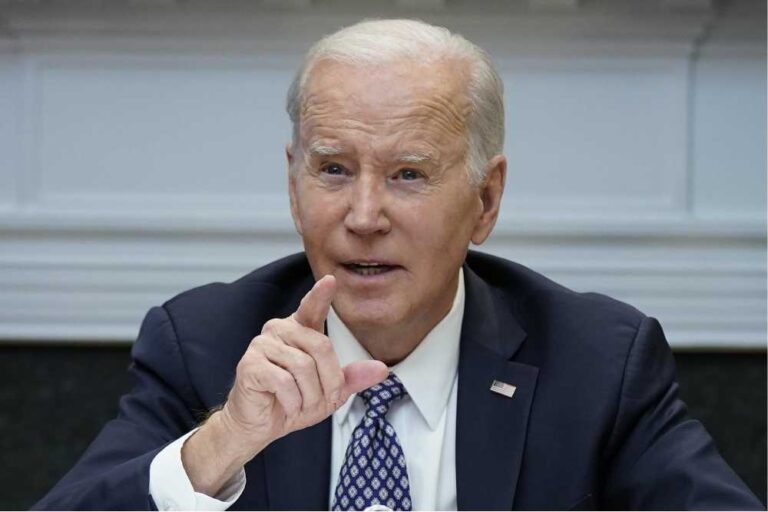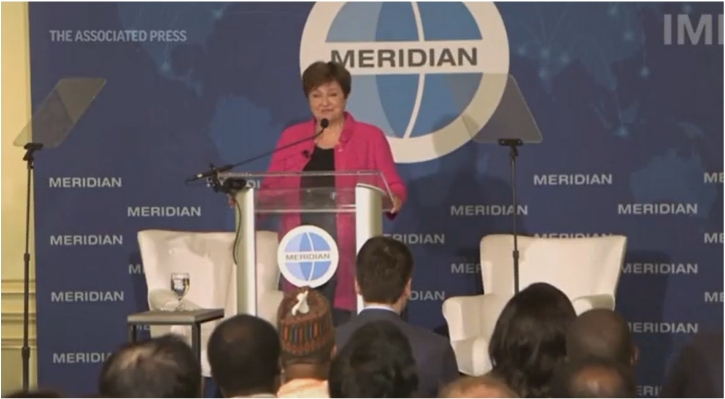President Joe Biden has received some positive economic news, raising hopes that the US economy can avoid a recession in the lead-up to the 2024 election. Despite most US adults having negative feelings about Biden’s economic leadership, some economists and the April jobs report have challenged economic orthodoxy that efforts to beat back inflation by the Federal Reserve would result in unemployment rising and the country sinking into recession.
The April jobs report showed a 3.4% unemployment rate and 253,000 jobs gained, after a Wednesday Fed meeting that suggested the US central bank might pause on its rate hikes, the primary tool for cutting inflation from its still-high 5% to something closer to 2%. Talks are also starting over the need to raise the debt limit, with Biden inviting congressional leaders to the White House for a Tuesday meeting in hopes of ultimately getting a commitment to avoid a default.
For a president seeking a second term, Biden struck a confident tone Friday when meeting with aides, even as he pushed GOP lawmakers for a clean increase on the debt cap. “We’re trending in the right direction, and I think we’re making real progress,” he said about the overall economy, telling Republican lawmakers to not “undo all this progress” with the debt limit standoff.
While the economy could still stumble due to the wild cards of the war in Ukraine, global tensions, and the debt limit fight, the steady job gains have suggested to some policymakers and economists that it’s possible to curb inflation without layoffs. Fed Chair Jerome Powell told reporters Wednesday that the current trends are going against history. “It wasn’t supposed to be possible for job openings to decline by as much as they’ve declined without unemployment going up,” Powell said. “Well, that’s what we’ve seen. There’s no promises in this, but it just seems that to me that it’s possible that we will continue to have a cooling in the labor market without having the big increases in unemployment.”
Heidi Shierholz, president of the Economic Policy Institute, a liberal think tank, said there are currently no signs of a recession, and if one erupts, it will be due to Fed overreach. “We are in the middle of a soft landing right now. We have shown we can bring down wage growth, bring down inflation,” she said.
However, voters are not pleased with the economy, as inflation remains a persistent irritant, and GOP lawmakers have used high prices in the wake of the pandemic as a political cudgel, insisting on spending cuts as part of a debt limit deal in order to reduce inflation. The debt limit deals with spending obligations that the United States has already incurred, not future spending.
Just as Biden trumpets the solid job market, Fed officials could interpret the hiring as evidence that they need to raise rates higher, causing more pain for the economy and the Democratic administration. “The starting point is the fact that inflation remains stubbornly high and politically troublesome,” said Douglas Holtz-Eakin, a former director of the Congressional Budget Office and president of the center-right American Action Forum. “The Fed would like to get it down. The data don’t just seem to behave. The Fed could very well hike again in June — and that would cause the financial markets to lose their collective mind.”
There is also the possibility that lawmakers fail to avert a default. Or, there could be so much drama over getting to a debt limit deal that the economy gets weaker this summer. The Treasury Department has forecast that its accounting maneuvers to keep the government running could be exhausted by early June, at which point an agreement would need to be in place.
The White House released estimates showing that brinkmanship over the debt limit, even if a deal comes together, could still cost the economy 200,000 jobs. Nor are all economists convinced the U.S. economy has escaped the gravitational pull of a recession. Many believe it could occur later this year, possibly shaping the 2024 campaign. While the jobs report might be a temporary reassurance for President Biden, rather than a lasting win, the historical pattern could reassert itself right as the campaign season begins to intensify. Despite the optimism surrounding the recent jobs report and the possibility of a soft landing, there are still many challenges and uncertainties facing the U.S. economy, including the ongoing effects of the COVID-19 pandemic, geopolitical tensions, and the ongoing battle over the debt limit. Only time will tell whether the economy can continue its current trajectory and avoid a recession in the coming years.











